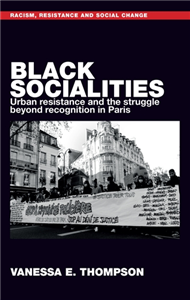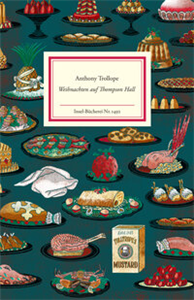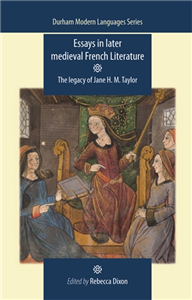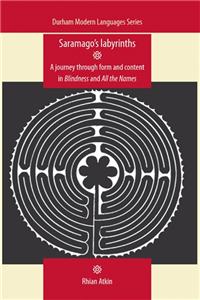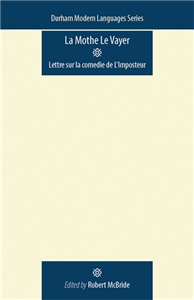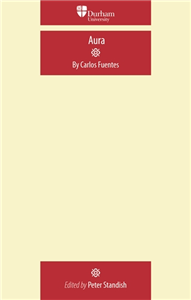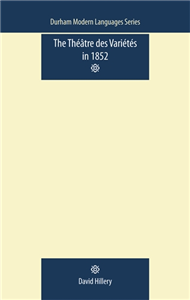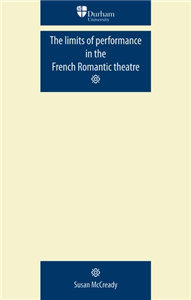Your Search Results
-
mikrotext / Nikola Richter
mikrotext is a publisher for texts with attitude and for new narratives, founded in 2013 in Berlin by Nikola Richter The independent publishing house focusses on new literary texts that comment on contemporary questions and allow insights into tomorrow. The texts are inspired by discussions on social media platformes and reflect today’s global debates. All titles are published digital first. A selection is available in English. In 2020 and 2019, mikrotext was awarded the German Publisher Award by the Federal Ministry of Culture and Media.
View Rights Portal
-
Promoted ContentLiterature & Literary StudiesOctober 2009
Fire, Blood and the Alphabet
One hundred years of Lorca
by Sebastian Doggart, Mike Thompson
Celebrates the life and work of Federico Garcia Lorca, Spain's greatest modern poet and dramatist. ;
-
Promoted Content
-
 Trusted Partner
The ArtsOctober 2015
Trusted Partner
The ArtsOctober 2015Film light
Meaning and emotion
by Lara Thompson
In one of the first monographs of its kind to focus on the aesthetic and emotional impact of lighting in cinema, Lara Thompson looks at the way light informs the cinematic experience, from constructing star identities, sculpting natural light and creating imaginary worlds, to the seductive power of darkness, fading representations of the past and arresting twilight encounters. This groundbreaking and accessible introductory study offers a unique insight into the way illumination has transcended its diffuse functional boundaries and been elevated to a position of narrative and emotional importance, transforming it from an unobtrusive element of film style to an expressive and essential component. It includes analyses of over fifty renowned international films, discussed in inventive and illuminating combinations, from cinema's earliest moments to its most recent digital manifestations, and is essential reading for all those who want to understand what film light means and how it makes us feel. ;
-
 Trusted Partner
Humanities & Social SciencesMarch 2026
Trusted Partner
Humanities & Social SciencesMarch 2026Black socialities
Urban resistance and the struggle beyond recognition in Paris
by Vanessa Eileen Thompson
From author: This is a cutting-edge exploration of black urban politics in Parisian racialized working class and working poor districts, the formation of abolition geography, and the possibilities of new forms of political blackness. In Black Socialities. Urban resistance and the struggle beyond recognition in Paris, Vanessa E. Thompson argues that black urban politics in the French banlieues are multi-racial and spatially grounded towards abolition. Based on a close engagement with urban black activist practices against racial imagery in the city, policing and state racism, and housing insecurity, she shows how radical anti-racism goes beyond struggles for recognition and unfolds alongside new formations of political blackness that is based on urban conviviality. This form of black politics has much to teach us in this current conjuncture of liberal anti-racism and state recognition politics.
-
 Trusted Partner
The ArtsFebruary 2006
Trusted Partner
The ArtsFebruary 2006Digging up stories
Applied theatre, performance and war
by James Thompson, Martin Hargreaves
In 'Digging up stories', James Thompson explores the problems of theatre practice in communities affected by war and exclusion. Each chapter or 'story' is written in a lively and accessible style and draws on a range of contemporary performance theories. The chapters discuss: - participatory theatre in refugee camps - theatre workshop and stories of a massacre - traditional dance-dramas in an insurgent controlled village - 'Forum' theatre with the Mahabharata - ethical issues - the struggle to teach the author to dance 'Digging up stories' documents a range of theatre practice and includes project reports, ethnographic accounts, performance analysis and diary-style reflection. Taken from Thompson's research and practice in Sri Lanka, these diverse examples question the link between applied theatre, traditional performance and performances in everyday life. The book blurs lines between research and travel writing to create rich and provocative accounts of applying theatre in a troubled setting. ;
-
 Trusted Partner
January 1983
Trusted Partner
January 1983Über Wachstum und Form
In gekürzter Fassung neu herausgegeben von John Tyler Bonner. Übersetzt von Ella M. Fountain und Magdalena Neff. Mit einem Geleitwort von Adolf Portmann
by D'Arcy Wentworth Thompson, John Tyler Bonner, Ella M. Fountain, Adolf Portmann
Zweifellos ist es ein verlegerisches Wagnis, DʼArcy Thompsons legendäres Buch im Zeitalter des Quasi-Ausschließlichkeitsanspruchs von Biochemie und Molekularbiologie in einer Neuauflage und dazu in deutscher Sprache herauszubringen. Wer von den jungen Biologen verbindet heute noch mit Thompsons Namen einen Begriff? Wer war dieser Mann? Was macht sein Werk noch heute druckenswert? Man könnte vielleicht aphoristisch sagen: DʼArcy Thompson war einer jener Polyhistores, von denen man meinte, sie seien mit dem Verklingen des Barock ausgestorben und in späterer Zeit nicht einmal mehr denkbar. Mithin ein verspäteter Barock-Gelehrter? Keineswegs, sondern einer der Pioniere der modernsten Biologie! Er vereinigte in sich das Denkvermögen des Mathematikers und Physikers mit dem des Linguisten und des Biologen, und er verfügt über das Handwerkliche aller drei dieser – ach doch so verschiedenen – Wissensgebiete. Dieses Buch hat eine widersprüchliche Geschichte: 1917 erschien die erste Auflage – damals vollendete Ketzerei – mit 793 Seiten Umfang, 1942 eine Erweiterung auf 1116 Seiten. Die posthume Neuauflage von Bonner – sie liegt der Übersetzung zugrunde – knüpft an die erste Auflage an, läßt vieles aus (weil es nicht mehr aktuell ist) und bringt zahlreiche Kommentare des Herausgebers. Es handelt sich also bei der vorliegenden Ausgabe um eine »Klassikeredition in Auswahl und mit Kommentar versehen«. Dies ist bei einem Buch mit einer erst 55jährigen Geschichte bemerkenswert. Um es vorwegzunehmen: von Thompsons Konzeption ist nichts Wesentliches verlorengegangen, und die Kommentare machen die Orientierung für denjenigen, der die Literatur nicht selbst kennt, leichter. (So. J.H. Scharf, Halle, 1974 in seiner Besprechung der deutschen Erstausgabe.)
-
 Trusted Partner
September 2021
Trusted Partner
September 2021Weihnachten auf Thompson Hall
by Anthony Trollope, Irmela Schautz, Andrea Ott
Brown am Abend vor Weihnachten in einem Pariser Hotel mit Husten krank im Bett liegt, kommt ihm das nicht ganz ungelegen: Seine Frau wollte dieses Jahr unbedingt im Kreise der Großfamilie auf dem englischen Familiensitz feiern, doch er hat ganz und gar keine Lust, am kommenden Tag früh dorthin aufzubrechen. Mrs. Brown will keine Ausflüchte gelten lassen, und damit ihr Mann rasch wieder zu Kräften kommt, verspricht sie ihm einen Senfwickel, der seinen Husten mildern soll. Doch woher mitten in der Nacht in einem fremden Hotel Senf nehmen? Mrs. Brown irrt durch die dunklen Gänge, doch als es ihr endlich gelingt, den Senfwickel anzulegen, erlebt sie eine Überraschung … Eine herrlich vergnügliche Weihnachtsgeschichte der etwas anderen Art mit bestem britischen Humor von Anthony Trollope.
-
 Trusted Partner
Humanities & Social SciencesJune 2015
Trusted Partner
Humanities & Social SciencesJune 2015E. P. Thompson and English radicalism
by Edited by Roger Fieldhouse and Richard Taylor
-
 Trusted Partner
Literature & Literary StudiesFebruary 2010
Trusted Partner
Literature & Literary StudiesFebruary 2010Essays in later medieval French literature
The legacy of Jane H. M. Taylor
by Mike Thompson, Rebecca Dixon
Over the course of a career spanning five decades, Jane Taylor has shown a commitment to the rehabilitation of the more neglected aspects of later medieval French literature. This volume brings together original contributions from scholars who have worked alongside Taylor and directly or indirectly benefitted from her example. The chapters demonstrate their authors' link to this legacy, and concomitantly underline the vibrancy and breadth of approach which is the hallmark of current later medieval studies. The essays in the collection centre on a number of key issues in the field: notions of literary self-consciousness and what it means to come after an avatar; issues of intertextuality and the appeal to past models in the creation of a new literary aesthetic (or a new literary criticism); and interdisciplinary questions of translation, reworking, and continuation. Essays in later medieval French literature seeks not only to illustrate the buoyant state of later medieval French literary studies but also, in so doing, to show how in broader terms responding to the legacy of an illustrious predecessor has not pejorative but positive consequences. ;
-
 Trusted Partner
Literature & Literary StudiesJune 2012
Trusted Partner
Literature & Literary StudiesJune 2012Saramago's labyrinths
A journey through form and content in Blindness and All the Names
by Rhian Atkin, Mike Thompson
Saramago's labyrinths is the first book-length study to focus on the relationship between form and the content in Saramago's writing, paying particular attention to Ensaio sobre a Cegueira (Blindness) and Todos os Nomes (All the Names). Atkin provides a close textual analysis of Blindness and All the Names, and suggests that the labyrinth pervades Saramago's work, both in the form of the text, and as a literary and philosophical trope. She makes clear connections between these novels and Saramago's other literary works, and identifies ways in which Saramago causes the reader to return to and consider the philosophical, epistemological and ethical concerns and dilemmas that are recurrent in his literary output. Atkin's jargon-free approach to Saramago's complex ideas, and her thorough understanding of Portuguese history, culture and society, make this an accessible yet challenging guide to Saramago's fiction, for undergraduate and postgraduate students and scholars with or without prior knowledge of the Portuguese context. ;
-
 Trusted Partner
January 2017
Trusted Partner
January 2017Selbstbewusstes Leben
Texte zu einer transformativen Theorie. der menschlichen Subjektivität
by Andrea Kern, Christian Kietzmann
Eine lange philosophische Tradition, die ihren Höhepunkt in der Philosophie des Deutschen Idealismus findet, vertritt die These, dass der Mensch sich grundlegend von den übrigen Tieren unterscheidet. Diese Position ist jedoch spätestens seit Darwin in die Defensive geraten, was vor allem daran liegt, dass ihre Anhänger oft genug nicht klar sagen können, worin die tiefe Differenz zwischen Mensch und Tier bestehen soll. Die in diesem Band versammelten Texte eint das Ziel, diese Differenz dagegen als eine Artikulation des Selbstbewusstseins derjenigen zu formulieren, deren Leben durch genau dieses Selbstbewusstsein einzigartig wird. Mit Beiträgen von u. a. James Conant, Andrea Kern, John McDowell, Terry Pinkard, Sebastian Rödl und Michael Thompson.
-
 Trusted Partner
Central government policiesDecember 2009
Trusted Partner
Central government policiesDecember 2009Candide en Dannemarc, ou l’optimisme des honnêtes gens
Voltaire
by Mike Thompson, Edouard Langille
Published in Rouen in 1767 and reprinted two years later, Voltaire's Candide en Dannemarc, ou l'optimisme des honnêtes gens wraps up the adventures of Candide. Turning his back on both Voltairean satire and scepticism, the novelist proposes a moralistic fable - the focal point of which is a rehabilitation of Leibniz's Theory of Optimism. The main body of the novel tells the story of Candide and his new wife, the noble Zénoïde, in their sumptuous Copenhagen townhouse. Before achieving this happy state, however, the couple endures various trials and tribulations reminiscent of the newly minted gothic genre. Candide en Dannemarc also features a satirical portrait of Jean-Jacques Rousseau. ;
-
 Trusted Partner
Literature & Literary StudiesFebruary 2014
Trusted Partner
Literature & Literary StudiesFebruary 2014La Mothe le Vayer
Lettre sur la comedie de L'Imposteur
by Mike Thompson, Robert McBride
The Lettre sur la comédie de l'Imposteur is the only work of any length which does full justice to comedy in the 17th century as a serious dramatic form. It is an important document in its own right and because it is inseparable from the historical context of Molière's Le Tartuffe ou l'Imposteur and the circumstances which influenced its development. ;
-
 Trusted Partner
Business, Economics & LawOctober 2004
Trusted Partner
Business, Economics & LawOctober 2004The UK financial system
4th Edition
by Mike Buckle, John Thompson
Substantially revised and updated, this fourth edition of The UK financial system presents a comprehensive explanation of the workings of the institutions and markets which make up the UK financial system, and discusses the issues affecting them. It presents key theoretical developments such as asymmetric information, the efficient markets hypothesis, behavioural economics and the term structure of interest rates, thus providing an analytical framework to aid understanding of the institutional structure. Several case studies are provided throughout the book looking at the failure of various financial firms and the lessons that can be learned from these. Examples include Equitable Life, Barings Bank, the Bank of International Credit and Commerce (BCCI) and Long Term Capital Management. ;
-
 Trusted Partner
Literature & Literary StudiesOctober 2009
Trusted Partner
Literature & Literary StudiesOctober 2009Aura
By Carlos Fuentes
by Mike Thompson, Peter Standish
Since its publication in 1962, Carlos Fuentes' novel, Aura, remains not merely an object of academic interest but a continuous source of controversy in Mexico. It was the explosive combination of sex and religion that incensed the Ministro de Hacienda, Salvador Abascal, and linked Aura to the recent polemical Mexican film El crimen del Padre Amaro. Aura is preoccupied with the place and persistence of the sacred in modern Mexico rather than simply the secret abuses of institutional Catholicism. This critical edition of the work is accompanied by an introduction and notes on the text. ;
-
 Trusted Partner
Humanities & Social SciencesNovember 2009
Trusted Partner
Humanities & Social SciencesNovember 2009Confabulations: Cologne life and humanism in Hermann Schotten’s Confabulationes Tironum Litterariorum (Cologne, 1525)
by Peter Macardle, Mike Thompson
This study, a companion to Peter Macardle's edition of the Confabulationes, examines the ways in which the colloquies relate to their Cologne background, to the major contemporary colloquy collections (particularly Erasmus's Colloquia and Mosellanus's Paedologia), and to the humanist renewal of Classical Latin. It also looks in detail at the documentary traces of Schotten's career, and of his networks of friendship and patronage, and tries to understand how he fitted into the structures of a university which has often been (wrongly) understood as hostile to humanism. Based on primary archival material, this is the only full-length study of this underrated German humanist's life and work. ;
-
 Trusted Partner
Literature & Literary StudiesJune 2012
Trusted Partner
Literature & Literary StudiesJune 2012The Théâtre des Variétés in 1852
by David Hillery, Mike Thompson
This book gives a picture of a year's activities at the Théâtre des Variétés. It includes an account of the financial side of the Theatre and impressions of the principal actors and actresses, as well as a month-by-month overview of what was actually performed. ;
-
 Trusted Partner
The ArtsNovember 2011
Trusted Partner
The ArtsNovember 2011The limits of performance in the French Romantic theatre
by Susan McCready, Mike Thompson
This volume analyses major French plays of the 1830s, focusing on their theatricality, and on the ways in which they expose the workings of the theatre rather than conceal them. Through an examination of performance within these plays, the study posits that the stage is a privileged site of demonstration, a literal 'proving ground' that lends a physical reality to abstract values announced in the text and shared or questioned by the audience. Negotiating between the literary study of drama and performance theory, this work breaks new ground in nineteenth-century theatre scholarship while proposing a fresh direction in the study of text and performance. The limits of performance 'challenges conventional wisdom', offering 'a novel take on the mal du siècle, that thematic hardy perennial of French Romanticism and the nineteenth century in general', combined with 'eminently readable and, therefore, compelling' analysis of plays - 'a thought-provoking addition to work in the field' (Glyn Hambrook, Modern and Contemporary France, November 2008). ;
-
 Trusted Partner
Trusted Partner
-
 Trusted Partner
December 2009
Trusted Partner
December 2009Malherbe, Théophile de Viau and Saint-Amant
A selection
by Mike Thompson, Richard G. Maber
This volume offers a representative yet concise selection of the work of the seventeenth-century poets, Malherbe, de Viau and Saint-Amant. It also provides supporting documentation to bring out the unique literary personality of each, and to help make their poetry as accessible as possible to a modern reader. It is designed to fill the gap between scholarly complete editions and more general anthologies which are rarely able to devote much space to any one author. The present volume was prompted by the success that this poetry enjoyed with readers who were relative newcomers to French verse. ;







